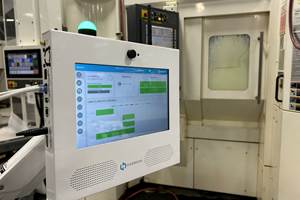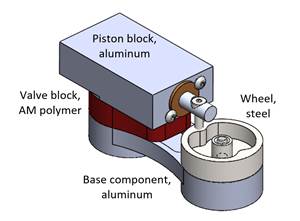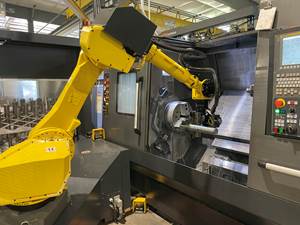Industry...Education's Proving Ground
Industry. education's proving ground.
Share





Industry...education's proving ground. This is more than just a title, this is a fact that must be recognized and confronted by the leaders in each of the involved sectors. If you will accept a liberal view of a school system, I would like to suggest that both industry and education deal in products that we must be able to sell to continue our livelihood. Like industry, education takes in raw material in the form of bright-eyed students. Then both perform a number of developmental operations (value added) on each product over a period of time. We could say that education then packages the student in a cap and gown and sends him or her out into the marketplace to be purchased by a customer (employer). How well these products function in the marketplace determines education's reputation as a quality supplier. I believe employers should be looked upon as the proving ground used to determine the continuous improvement issues of the educational system.
Let's put the educator-employer relationship in the proper perspective. Education is the producer of certain goods that come to it in a raw state, and education adds value to these goods before attempting to merchandise them to employers, education's customer. Education has a certain advantage in an otherwise stimulating marketing situation, since employers are essentially at education's mercy accepting education's product . . . good or bad. For employers to go to an alternate supplier is undesirable or impossible in most cases. Obviously, there are differences between the products of education and industry. It is rare that one of industry's products will fight back and refuse to be prepared for shipment. Educators might say that employers have the advantage. But I feel that educators have the advantage because employers can't move without the benefit of an educated and skilled workforce. If workers fail when put on the job, the employer suffers.
No wonder employers become concerned when they can't get enough skilled workers. Some individuals become so overwrought about this that they carp at education, suggesting that the schools are incapable of producing any kind of worthwhile product. Just as unrealistically, some educators, frustrated with the problems of dealing with raw materials that think they can control their own destiny no matter how unwisely, stab their fingers at employers and suggest that employers might do more to fix the problem than be part of it. And so we bait each other, mostly unintentionally and out of frustration. In my opinion, we should be spending our energies developing a cooperative program of mutual aid based on communication and understanding of each other's needs and capabilities. Industry has recently taken several steps to reach out to the educational community nationwide. But it is not happening fast enough and not in enough locations. We as leaders in the metalworking industry simply must become more assertive in our communities to communicate and help implement two key initiatives that will help education produce a product that truly meets our industry's requirements. This effort should be looked upon in the same way as industry now works with its other key suppliers. Industry's focus should be to make suppliers more successful and to build a strong supplier base to serve as partners to improve performance.
What are the two key initiatives? First, we in the metalworking industry must become more familiar and buy into the industry skill standards that our industry has worked so hard to develop. As employers, we should be asking for NIMS credentials in our employment ads. We should also be working with our existing workers and encouraging them to seek NIMS credentials. If schools or other training providers in our community don't currently benchmark their curricula to the NIMS Standards, we must help them do so. Secondly, we must encourage and help our secondary and post secondary schools to adopt SkillsUSA-VICA as the key strategy for producing the type of potential worker that has the attitudes, social and team skills, and pride of workmanship that is so badly needed.
As a business leader, think of the alternatives: You could hire anyone and spend valuable time and money on training. You could ask your senior workers not to retire or to work excessive overtime. Or you could get together with other industry leaders in your community to improve your supplier base for one of the most important issues for your company's future...the development of a highly skilled workforce.
Related Content
Can Connecting ERP to Machine Tool Monitoring Address the Workforce Challenge?
It can if RFID tags are added. Here is how this startup sees a local Internet of Things aiding CNC machine shops.
Read MoreManufacturing Madness: Colleges Vie for Machining Title (Includes Video)
The first annual SEC Machining Competition highlighted students studying for careers in machining, as well as the need to rebuild a domestic manufacturing workforce.
Read MoreSolve Worker Shortages With ACE Workforce Development
The America’s Cutting Edge (ACE) program is addressing the current shortage in trained and available workers by offering no-cost online and in-person training opportunities in CNC machining and metrology.
Read MoreSame Headcount, Double the Sales: Successful Job Shop Automation
Doubling sales requires more than just robots. Pro Products’ staff works in tandem with robots, performing inspection and other value-added activities.
Read MoreRead Next
Building Out a Foundation for Student Machinists
Autodesk and Haas have teamed up to produce an introductory course for students that covers the basics of CAD, CAM and CNC while providing them with a portfolio part.
Read More5 Rules of Thumb for Buying CNC Machine Tools
Use these tips to carefully plan your machine tool purchases and to avoid regretting your decision later.
Read MoreRegistration Now Open for the Precision Machining Technology Show (PMTS) 2025
The precision machining industry’s premier event returns to Cleveland, OH, April 1-3.
Read More



















.jpg;maxWidth=300;quality=90)










